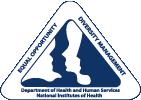Policy Statement on Respect in the WorkplaceJanuary 7, 2000 To: All NIH Employees From: Acting Director, NIH Subject: Respect in the Workplace As the year 2000 begins, we stand on the threshold of the most significant medical research advances in history. Our efforts at the NIH will continue to exploit these exciting opportunities as long as we work together in a positive environment to help identify the causes, cures, and prevention of human disease. But our scientific research can succeed only if all NIH employees work together as a team and treat each other in a truly respectful manner and work hard to eliminate any vestiges of disrespect and unfairness 'in the workplace. I am asking all NIH employees to recommit themselves to this goal. Occasionally, honest disagreements between employees or between employees and supervisors can arise. If this happens, concerns should first be raised with the supervisor or the second-level supervisor if the issue is between an employee and her or his immediate supervisor. This procedure enables managers to investigate employee concerns and take appropriate action. Modem technology, such as e-mail and faxes, may appear to provide ways to express individual employee concerns; however, the established procedures are the most effective way to ensure responsible follow-up. Other avenues are available if the above procedures do not resolve the concerns. A complete listing is attached and can be found on the homepage for the NIH Center for Cooperative Resolution (CCR) or at the CCR office in Building 31, Room 1 B37. This document provides information on procedures covering all aspects of employment including disputes over scientific issues; disputes over working conditions or relationships; discrimination; and issues of waste, fraud, or abuse. The management of the NIH will review all concerns raised through these channels and take action whenever appropriate. But maintaining a civil and respectful workplace also means that these procedures should not be used casually. Please remember that unfairly or frivolously accusing another employee of an improper activity is disruptive and is not acceptable. If we find that an employee has engaged in this type of conduct or has knowingly made unsubstantiated allegations, she or he will be subject to disciplinary action. Again, please join me in recommitting to the goal of cooperation and respect in the workplace. Together, we can ensure an NIH working environment that will foster exciting and far-reaching medical breakthroughs in this coming century. /s/ Ruth L. Kirschstein, M.D. |
Office of Equal Opportunity
& Diversity Management
U.S. Department of Health & Human Services
National Institutes of Health





